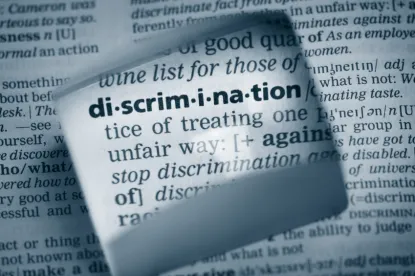n the last day of the 2019–2020 legislative session, the New York State Senate and Assembly passed an omnibus bill. This legislation, once effective, will overhaul New York’s antidiscrimination laws and uproot precedent that employers have relied upon for decades in defending harassment claims. Governor Andrew Cuomo is expected to promptly sign the bill into law.
The omnibus bill amends various New York State laws, including the New York State Human Rights Law (NYSHRL), the General Obligations Law, the Civil Practice Law and Rules (CPLR), and the New York Labor Law. Below is a summary of the bill and the changes it brings to the laws applicable to employment discrimination in New York.
Expansion of the NYSHRL and Statute of Limitation for Sexual Harassment Claims
If enacted, all private sector employers will be subject to the antidiscrimination provisions of the NYSHRL. Previously, only employers with four or more employees were subject to most antidiscrimination provisions of the NYSHRL.
As we previously reported, in 2018 the NYSHRL’s prohibition against sexual harassment was expanded to nonemployees, such as independent contractors, consultants, vendors, subcontractors, and persons providing services pursuant to a contract. The new legislation extends to nonemployees the prohibition against unlawful discrimination based upon each of the protected categories identified in the NYSHRL.
The bill will also permit complaints of sexual harassment to be filed with the New York State Division of Human Rights (NYSDHR) within three years after the alleged unlawful harassment. Under the current law, individuals have one year to file such claims with the NYSDHR but three years to file a claim in court.
Lower Standard for Harassment Claims Based on Any Protected Characteristic
If this bill is enacted, New York will diverge from the well-established standards of case law construing federal antidiscrimination laws, and claims under the NYSHRL will be evaluated under a much lower standard, similar to one currently applied to harassment claims under the New York City Human Rights Law (NYCHRL). For decades, courts have evaluated claims brought pursuant to the NYSHRL under a “severe or pervasive” standard, which is the standard used to evaluate claims brought under Title VII of the Civil Rights Act of 1964. The “severe or pervasive” standard was first articulated by the Supreme Court of the United States in Meritor Savings Bank v. Vinson, 477 U.S. 57 (1986), where it held that an individual alleging hostile work environment harassment under Title VII must prove that the challenged conduct was sufficiently severe or pervasive to alter the conditions of his or her employment and created an abusive working environment.
Specifically, the New York State Legislature has expressly stated that harassment based on an individual’s age, race, creed, color, national origin, sexual orientation, gender identity or expression, military status, sex, disability, predisposing genetic characteristics, familial status, marital status, or domestic violence victim status or because the individual has engaged in protected activity as set forth under the law is unlawful “regardless of whether such harassment would be considered severe or pervasive under precedent applied to harassment claims.” Such harassment will now be an unlawful discriminatory practice when it “subjects an individual to inferior terms, conditions or privileges of employment” because of his or her protected characteristics. Claims by domestic workers will be subject to the same standard.
Longstanding Affirmative Defenses Rejected
If this bill is passed, the NYSHRL will be amended and will expressly provide that “[t]he fact that such individual did not make a complaint about the harassment to” his or her employer, “shall not be determinative of whether” such employer is liable. This change rejects the current well-established and commonly relied upon Faragher-Ellerth defense to harassment claims. The Faragher-Ellerth defense was set forth by the Supreme Court in Faragher v. City of Boca Raton and Burlington Industries, Inc. v. Ellerth and provides a shield to employers for harassment committed by a supervisory employee when the employer can prove, among other things, that the employer exercised reasonable care to prevent and promptly correct the harassing behavior and the employee unreasonably failed to take advantage of the preventive or corrective opportunities provided by the employer, or otherwise failed to avoid harm.
Instead, employers will have a seemingly narrow affirmative defense to liability under the NYSHRL “that the harassing conduct does not rise above the level of what a reasonable victim of discrimination with the same protected characteristic would consider petty slights or trivial inconveniences.” While this standard is similar to one utilized under the NYCHRL, it is unclear how this will be interpreted by courts or administrative agencies.
Further, the bill expressly states that nothing in the law implies or requires that the employee demonstrate the existence of an individual to whom the employee’s treatment must be compared. This also diverges from the analysis employed by courts construing federal antidiscrimination laws.
Attorney’s Fees and Punitive Damages Now Recoverable Under the NYSHRL
The new legislation will allow successful plaintiffs in any employment discrimination action against a private employer to recover punitive damages. Previously, damages under the NYSHRL included compensatory damages, but not punitive damages. The prevailing party in any employment discrimination action under the NYSHRL may also recover reasonable attorney’s fees. While this was made mandatory in one version of the bill, an amendment to fix technical mistakes of the bill clarifies that the award of reasonable attorney’s fees is discretionary.
Liberal Construction of the NYSHRL
If enacted, the bill will also amend the construction of law to highlight that the provisions of the NYSHRL must be construed “liberally for the accomplishment of the remedial purposes thereof, regardless of whether federal civil rights laws, including those laws with provisions worded comparably to the provisions of this article, have been so construed. Exceptions to and exemptions from the provisions of this article shall be construed narrowly in order to maximize deterrence of discriminatory conduct.” This familiar language is comparable to the provisions of the Local Civil Rights Restoration Act of 2005, which clarified the scope of the NYCHRL. While it is unclear how this provision of the NYSHRL will be interpreted, courts may rely upon this statutory language to construe the NYSHRL more broadly and liberally and in a manner that is consistent with the construction of the NYCHRL.
Nondisclosure Agreements
As we previously reported, effective July 11, 2018, employers in New York State were prohibited from requiring nondisclosure clauses in any settlement, agreement, or other resolution of any claim where “the factual foundation for which involves sexual harassment” unless the condition of confidentiality is the complainant or plaintiff’s preference. If enacted, this bill will expand this recent provision to apply to nondisclosure agreements regarding any form of discrimination, including but not limited to the NYSHRL.
The bill clarifies that any nondisclosure term or condition must be provided in writing to all parties in plain English and, if applicable, the primary language of the complainant, after which he or she will have 21 days to consider such term or condition and 7 days to revoke the acceptance after execution of such agreement.
Any nondisclosure term or condition will be void to the extent that it prohibits or otherwise restricts the complainant from:
(i)“initiating, testifying, assisting, complying with a subpoena from or participating in any manner with an investigation conducted by the appropriate local, state, or federal agency; or
(ii)filing or disclosing any facts necessary to receive unemployment insurance, Medicaid, or other public benefits to which the complainant is entitled.”
Notably, any agreement entered into on or after January 1, 2020 that prevents the disclosure of factual information related to any future claim of discrimination is void and unenforceable, unless such provision notifies the employee or potential employee that it does not prohibit him or her from speaking with law enforcement, the Equal Employment Opportunity Commission, the NYSDHR, a local commission on human rights, or an attorney retained by the employee or potential employee.
Mandatory Arbitration
As we previously reported, effective July 11, 2018, employers in New York State were also prohibited from requiring employees to sign agreements that require mandatory binding arbitration of claims relating to sexual harassment. If enacted, this new bill will expand the prohibition on mandatory arbitration to all forms of discrimination.
Sexual Harassment Training and Policy
Upon hire and at every annual sexual harassment prevention training program, employers will be required to provide employees a notice containing the employer’s sexual harassment prevention policy and the information presented at such employer’s sexual harassment prevention training program (in English and in the primary language of the employee).
Beginning in 2022 and every four years thereafter, the New York Department of Labor, in conjunction with the NYSDHR, must evaluate and update the model sexual harassment prevention guidance documents policies as needed.
How Can Employers Prepare?
To prepare for these changes in New York laws, employers will likely want to carefully review their current practices and consider the following steps:
-
Review all agreements, including but not limited to employment, separation, or settlement agreements, to ensure any nondisclosure clauses meet the requirements of the new law.
-
Ensure the required sexual harassment notice is distributed at the time of hire and at the annual sexual harassment prevention trainings.
-
Train and inform all employees involved with employee relations about the new requirements.





 />i
/>i

